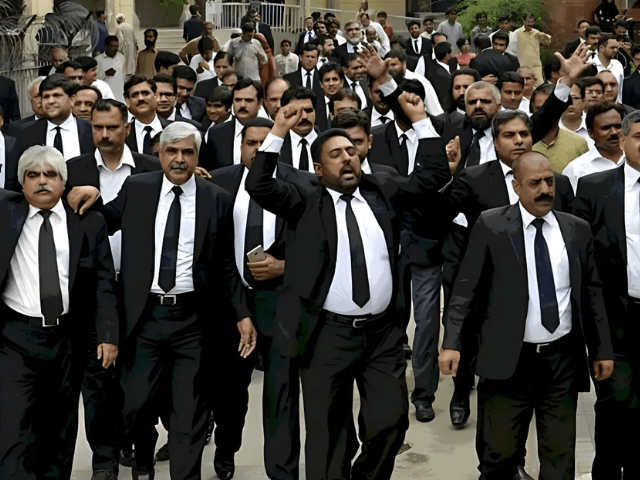The Islamabad police have closed several key input points to the red zone of the federal capital in response to a protest called by lawyers.
The protest also led to the suspension of metrous connections on several routes between Islamabad and Rawalpindi, which resulted in significant disadvantage of commuters.
According to reports, buses operating between Rawalpindi and Islamabad were limited to Faiz Ahmed Faiz station. In addition, the route from Kashmir Highway to the Pak Secretariat was closed after orders from the district administration.
The entrance points to the red zone from Serena Chowk, Express Chowk and Nadra Chowk have been blocked.
The closure of the red zone has caused significant traffic disorders, which has led to heavy overload, with long lines with vehicles formed on Margalla Road when drivers try to enter the red zone.
The report also mentions that citizens trying to visit government offices in the red zone, including the Ministry of Foreign Affairs, have been stranded due to the road closures.
In a traffic advisory issued by Islamabad’s traffic police, it was stated that in the event of a law and order issues, the entry and exit routes to the red zone will remain closed.
The advisory also mentioned that on February 10, 2025, the internal and external routes to the red zone will be closed.
The traffic police confirmed that the entry and exit routes to the red zone, including Serena, Nadra, Marriott, Express Chowk and T-Cross near Bari Imam, will be temporarily closed from 1 p.m. 06 to further.
Police have requested the public to use alternative routes, such as Margalla Road, to avoid any travel olic apartment. Islamabad traffic police have assured that it will help and guide citizens during this time.
The traffic police also advised citizens to contact Traffic Helpline number 1915 or follow Islamabad Traffic Police’s social media platforms for further guidance.
The advice from the Federal Capital Traffic Police confirmed that Margalla Road remains the only route to enter the red zone.
Last week, legal organizations in Islamabad strongly opposed the recent transfers of judges and regarded them as an attempt to divide the judiciary and an act of bad faith.
By tackling the media, Islamabad said Council’s chairman of Aleem Abbasi that all representatives of District and High Court Bar Associations were present at the emergency meeting.
The Legal Commission for Pakistan (JCP) is ready to meet here Monday (today) to consider the increase of eight Supreme Court judges to the Supreme Court, despite the calls of some judges and sections of the legal community to postpone the meeting.
Just a few days ago, four Supreme Court’s judges wrote to Chief Justice Yahya Afridi, who also leads JCP and requested a postponement. In addition, a JCP member also wrote a separate letter calling on Chief Justice to postpone the new agreements to the point of view.
13-memories JCP is led by Chief Justice of Pakistan and includes four judges at the Pointed Court as well as parliamentarians from both the Treasury and the Opposition and others.



